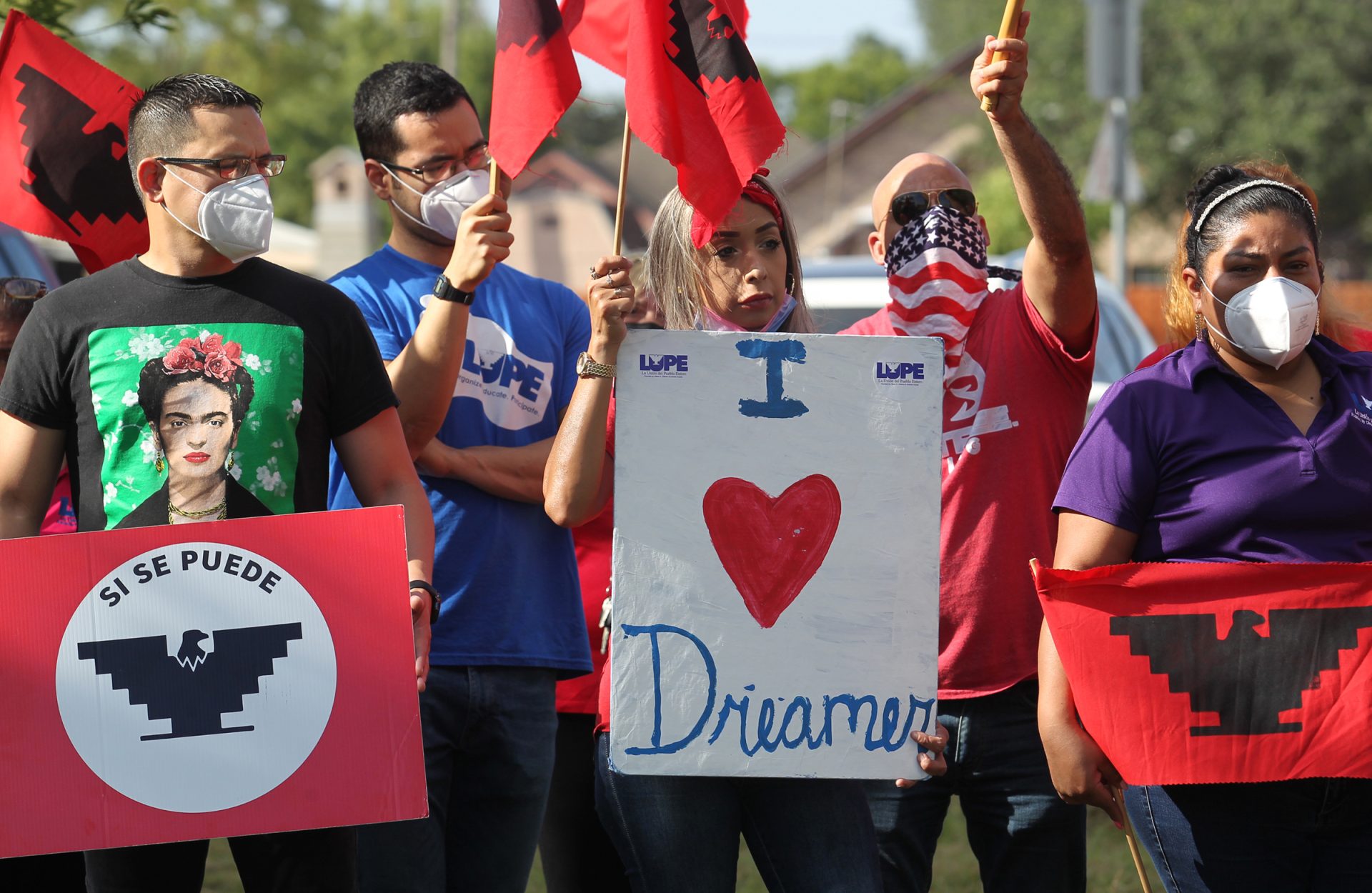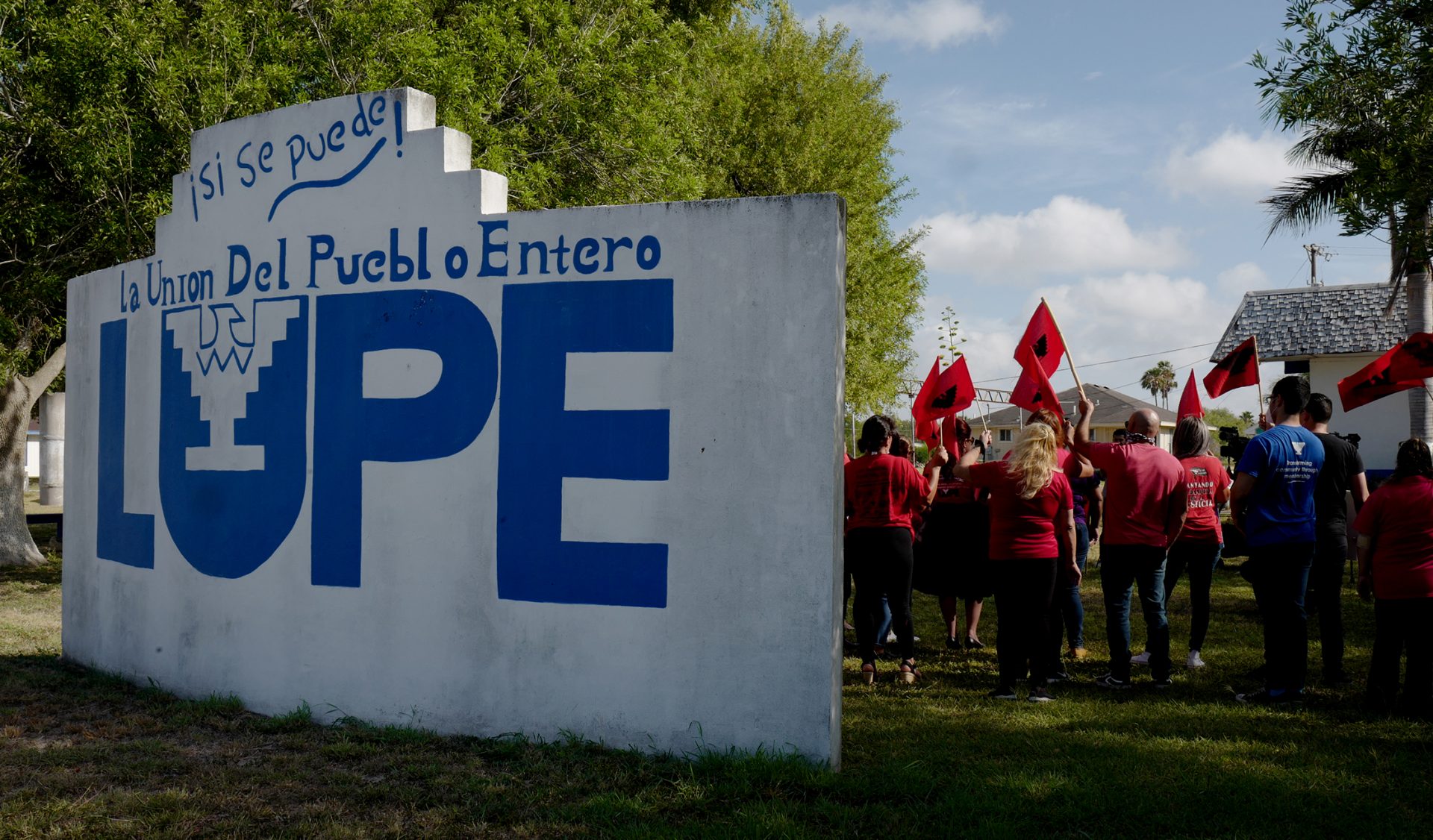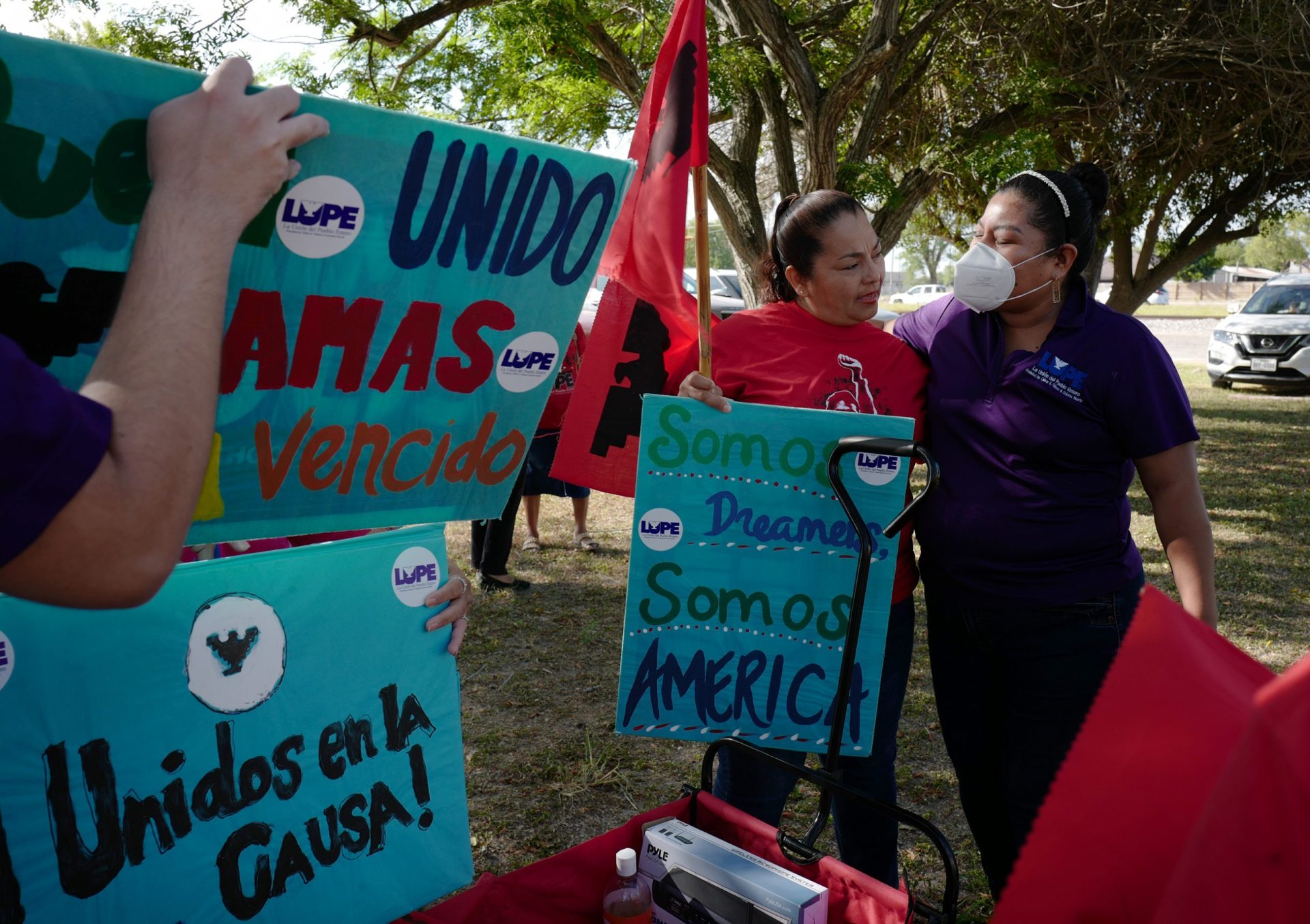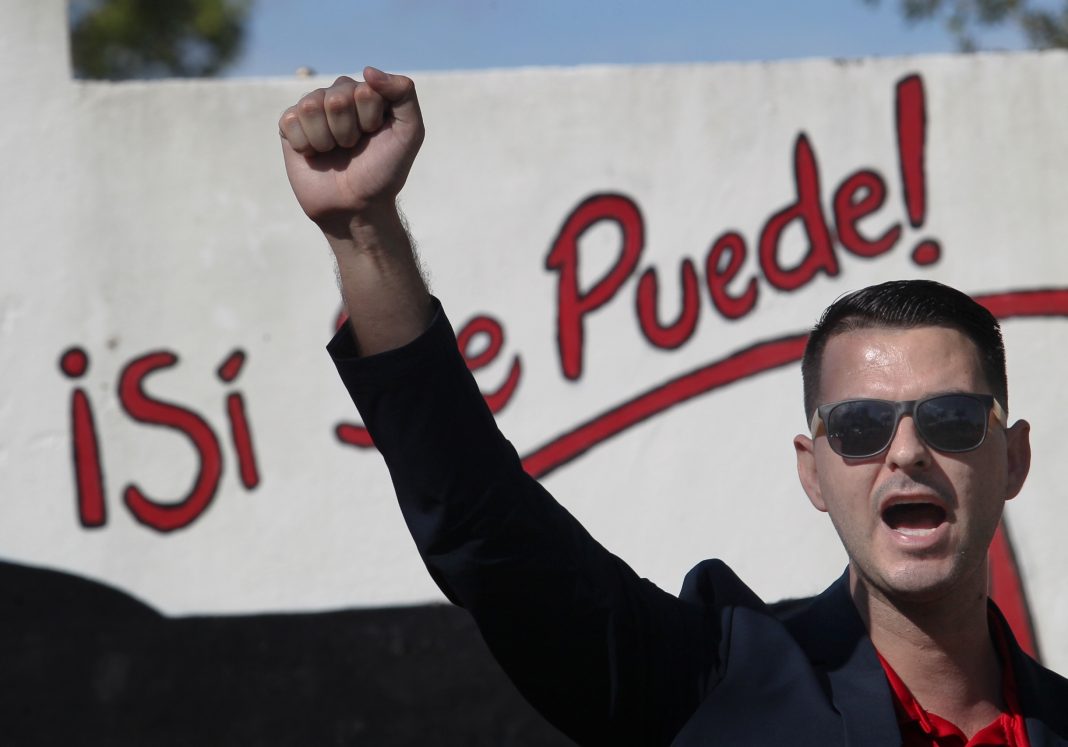SAN JUAN — As the legality of an Obama-era program that protects undocumented immigrants who were brought to the U.S. as children from deportation was argued before a federal appeals court Wednesday, advocates and beneficiaries of the program say it’s not enough.
Members of La Union Del Pueblo Entero held a news conference Wednesday morning as oral arguments were set to begin in the 5th U.S. Circuit Court of Appeals in New Orleans where the state of Texas argued for the end of the Deferred Action for Childhood Arrivals program, or DACA.
A federal judge in Texas ruled the program was unlawful last year but that ruling is now on appeal by the Biden administration.
The program, enacted via an executive order by then President Barack Obama, protected undocumented immigrants who were brought to the U.S. before they were 16 years old. Those who were eligible and applied were also able to obtain a work permit.

LUPE members and DACA recipients gather during a news conference at LUPE Wednesday, July 6, 2022 in San Juan. (Delcia Lopez | [email protected])
Currently, the program is not open to new enrollees though those who are already in the program are able to renew their application, which they must do every two years in order to stay in the program.
Supporters of the program argue that the protections offered by DACA are not enough and called on President Joe Biden and Congress to pass immigration reform that offered protections for the more than 11 million undocumented immigrants currently living in the U.S.
“DACA is under attack and we need to continue to fight for freedom and end threats of deportation for simply not having adequate protections in this country,” said Joaquin Garcia, director of the organizing team for LUPE. “This moment is part of our larger human rights campaign that everyone should be able to live in freedom and without fear in this country.”
Karina Hernandez, a DACA recipient or Dreamer as they’re often called, said her family brought her to the country from Veracruz when she was 8 years old.
In 2012, she was the first in her family to graduate from high school and hopes to be a sign language interpreter. But with much uncertainty surrounding the DACA program, she said she’s frustrated.
“We’re not going to be able to work, if they take away the permit,” she said. “We’re not going to be able to work, be able to provide for our families, be able to, like me who lives alone … what am I going to do?”

She worries she won’t be able to pay her rent or other needs.
“Like everybody else, we’re human beings and we have our necessities,” she said, “and so we want something permanent and we’ve been fighting day after day for them to give us something permanent.”
Abraham Diaz, a former DACA recipient, said he was grateful for the program because during the near decade he was in it, he was able to live a freer and more full life.
“It opened my eyes to the endless opportunities that I deserve, that I deserved as a human being, that I deserved as a person,” Diaz said. “This program also gave me protection from deportation which is something that our community needs. It gave me a work permit and more economic stability.”
But like Hernandez, Diaz believed the government needed to do more.
“What I do know is that DACA is not enough, DACA has never been enough,” he said. “We know that DACA is just a Band-Aid (for) the big issue that we have on hand. It covered close to 800,000 people when we have over 11 million people that need solutions.”

He criticized what he viewed as anti-immigrant policies such as the state’s Operation Lone Star and Title 42 which is a health policy implemented by the Centers for Disease Control and Prevention in response to the COVID-19 pandemic, which is used to prevent migrants from seeking asylum.
“DACA is no substitute for what we truly need. We need permanent protections, not only for me, not only for DACA recipients, but for our parents, for our brothers, for our sisters and we need long-lasting protection that we need and we deserve,” Diaz said.
“Right now,” he added, “I call on President Biden, on Congress, on the Senate to take this seriously and to look back on all the great things that this program has created and use that as a stepping stone to create permanent protections for our families and for our community.”





